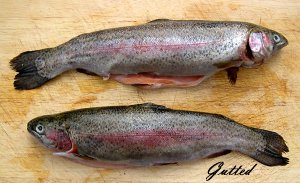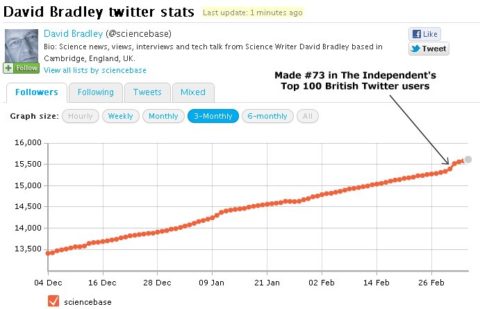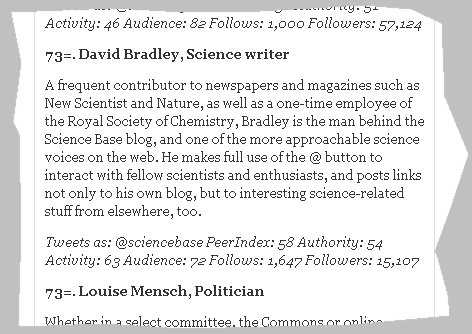 Odd search phrase popped up in the Sciencebase logs today. Unfortunately, there isn’t an item in the archives that’s particularly relevant other than a story about a baseline analytical study that looked at arsenic, cadmium, lead and mercury content of tinned sardines using spectroscopy. I was intrigued, is there some advocacy (perhaps initiated by the fishing industry) to the idea that sardines can boost fertility. A PubMed search with surrounding terms: pilchards, fertility, sperm, sardines, brought up just one research paper: “Reproduction of the Spanish sardine, Sardinella aurita (Clupeiformes: Clupeidae) from the south-eastern area of Margarita Island, Venezuela”. Probably not entirely relevant.
Odd search phrase popped up in the Sciencebase logs today. Unfortunately, there isn’t an item in the archives that’s particularly relevant other than a story about a baseline analytical study that looked at arsenic, cadmium, lead and mercury content of tinned sardines using spectroscopy. I was intrigued, is there some advocacy (perhaps initiated by the fishing industry) to the idea that sardines can boost fertility. A PubMed search with surrounding terms: pilchards, fertility, sperm, sardines, brought up just one research paper: “Reproduction of the Spanish sardine, Sardinella aurita (Clupeiformes: Clupeidae) from the south-eastern area of Margarita Island, Venezuela”. Probably not entirely relevant.
The nutrient coenzyme Q10 (ubiquinone), which is found in beef, soy, mackerel, sardines, spinach, peanuts and vegetable oil is purportedly linked to increased sperm count and sperm motility although it is present mainly in the mitochondria and is linked to cellular energy from ATP. Research has suggested that it has a positive impact on seminal oxidative defence but doesn’t affect sperm number nor motility. So, maybe that’s a red herring (pardon the pun). A slightly more recent paper suggests it does have a positive effect, however.
There is a lot of spurious information on so-called “natural” fertility improving sites. Several of which mention sardines in a long list of foods that are supposed to be beneficial. Others simply say that it cannot hurt to eat healthily and cite the fact that sardines contain healthy fats (polyunsaturated omega-3 fatty acids: eicosapentaenoic acid, EPA, and docosahexaenoic acid, DHA) that might improve insulin sensitivity and reduce inflammation, which are “critical to fertility”. So, just generic and general advice there with no specific scientific support for sperm. There also wild claims that the omega-3 in sardines boost libido…
I wonder whether Oprah is a fan or they featured on Letterman or got a celebrity endorsement. That might explain the sudden rush of visitors to Sciencebase searching for “sardines for fertility”? Anyone know?
As an aside, is my photo of gutted trout a red herring too?

 You’ve heard of rose-tinted spectacles, red lenses as it were., but how about a pair of glasses that gives you the edge on assessing a person’s inner emotions or helps medics work out who is truly ill.
You’ve heard of rose-tinted spectacles, red lenses as it were., but how about a pair of glasses that gives you the edge on assessing a person’s inner emotions or helps medics work out who is truly ill. viaÂ
via  Odd search phrase popped up in the Sciencebase logs today. Unfortunately, there isn’t an item in the archives that’s particularly relevant other than a story about a baseline analytical study that looked at arsenic, cadmium, lead and mercury content of tinned sardines using spectroscopy. I was intrigued, is there some advocacy (perhaps initiated by the fishing industry) to the idea that sardines can boost fertility. A PubMed search with surrounding terms:
Odd search phrase popped up in the Sciencebase logs today. Unfortunately, there isn’t an item in the archives that’s particularly relevant other than a story about a baseline analytical study that looked at arsenic, cadmium, lead and mercury content of tinned sardines using spectroscopy. I was intrigued, is there some advocacy (perhaps initiated by the fishing industry) to the idea that sardines can boost fertility. A PubMed search with surrounding terms: